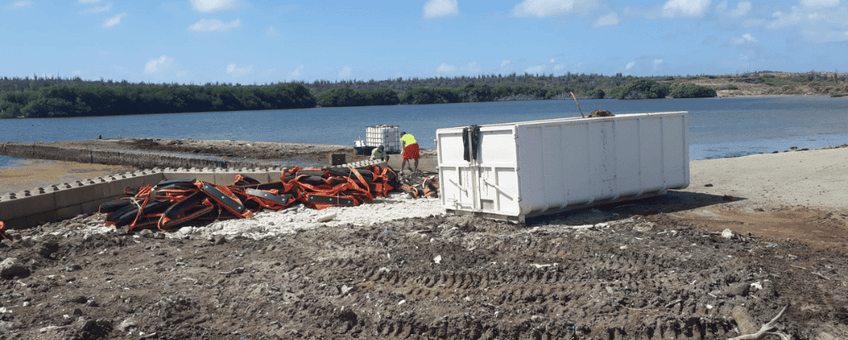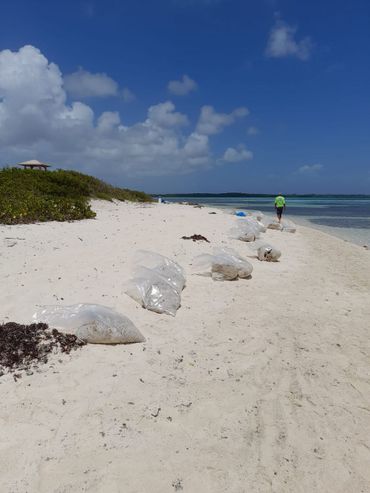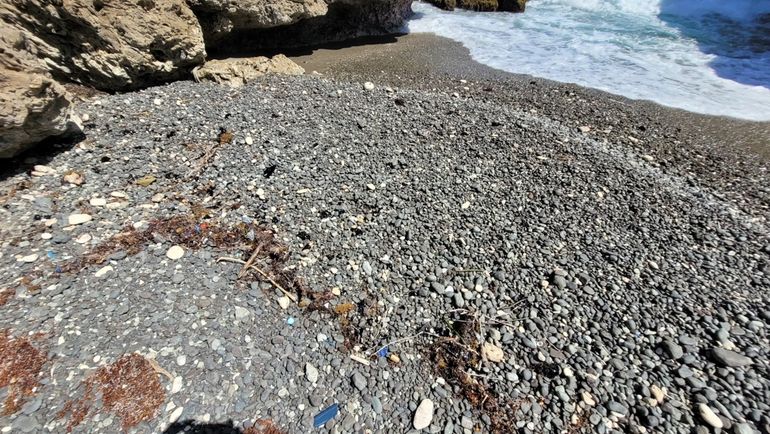
Oil spill: Bonaire’s and Curaçao's rapid response
Dutch Caribbean Nature Alliance (DCNA)The spill's reach, stretching far from its origin, underscores the interconnectedness of these ecosystems and the far-reaching impact of such disasters. Bonaire and Curaçao also showed the strength of readiness, rapid response, and collaboration amongst several local and regional stakeholders. The experiences serve as significant stress tests and contribute to enhancing the islands' preparedness for future calamities.

The incident, which unfolded last week, traces back to a barge that left from Panama and was being tugged to Guyana when it began to sink. Environmental experts have issued stark warnings, estimating that the cleanup of such a spill could take up to eight months, with the environmental impacts lasting much longer. The oil is classified as bunker fuel and can be quite damaging to the environment as it includes aromatics, sulfur and nitrogen. Furthermore, this fuel breaks down when exposed to sunlight (for instance while floating on the sea surface) making the toxic components more easily absorbed by the environment when they reach land.
Impacts on environment
Oil spills pose numerous risks to the environment, wildlife, human health, and economies. The impacts of oil spills on nearshore ecosystems are profound and multifaceted. Short-term effects are often visible to the naked eye: oil-coated wildlife, smothered vegetation and beaches, and polluted waters. These immediate impacts disrupt the delicate balance of coastal ecosystems, endangering the survival of various species including fish, birds, marine mammals, and invertebrates. The oil's presence on the water's surface blocks sunlight, critical for marine plants and the health of coral reefs. On land, the spill smothers vegetation, hindering growth and affecting the species that depend on these plants for shelter and food.
However, the long-term consequences of oil spills can be even more devastating, altering the structure of ecosystems for years to come. Toxic substances from the oil can accumulate in the food chain, leading to decreased fertility and increased mortality rates among marine species. Habitats may undergo irreversible changes, leading to the loss of biodiversity and the disruption of ecological balance.
Bonaire
In the week of the 26th of February 2024, the oil reached the east side of Bonaire and oil was collected within two bays: Lagun and Lac Bay. Oil booms were in place within both of these bays prior to the arrival of the oil. The overall impact of the oil on the eastern shores of Bonaire is still unclear, although the swift response by the Public Entity Bonaire (OLB), Harbor Master, STINAPA, Coast Guard, fire brigade, Dienst Landbouw, Veeteelt en Visserij (LVV), Defense Military of Curaçao and Lac stakeholders seems to have mitigated some of these risks. Nolly Oleana, Governor of Bonaire, stated on the 4th of March that "Bonaire has escaped a big disaster".
Curaçao
As soon as the oil washed upon the shores of Bonaire, Caribbean Research and Management of Biodiversity (CARMABI) offered its assistance to the Marine Authority Curaçao and the Disaster coordinator. Their help was warmly welcomed. The Marine Park rangers started a daily monitoring from Caracasbaai up to East Point, also during the weekend. The rangers at The Christoffel National Park and the Shete Boka National Park monitored the beaches in the Parks and West Point area. Very limited oil patches were found. The monitoring will continue until the efforts on Bonaire are scaled down.

Lessons learned
Reflecting on the situation, authorities acknowledge the challenges in accurately predicting the trajectory of the oil patches. While forecasting remains difficult, it's understandable that authorities aimed to avoid causing panic, considering the profound impact it could have on the island and its economy. The crisis team's subsequent responses were validated by events, demonstrating their effectiveness. Big compliments to all involved authorities for their commendable efforts. Such experiences serve as significant stress tests and contribute to enhancing the islands' preparedness for future calamities.
Text: Dutch Caribbean Nature Alliance (DCNA)
Images: STINAPA; Tanya Haynes
